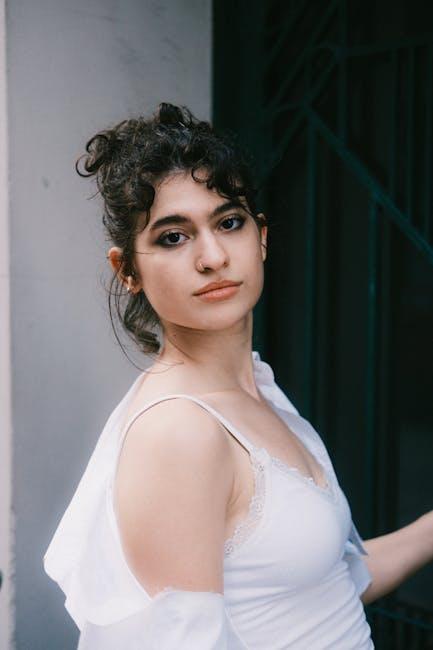Navigating the world of first dates can feel like deciphering an intricate dance, where every gesture and glance holds the potential to reveal unspoken truths. Body language, often more telling than words, becomes the silent communicator in this delicate exchange. But how do we interpret these nonverbal cues without jumping to conclusions or overstepping boundaries? In “,” we delve into the subtle art of understanding gestures and expressions, offering insights that help you connect authentically while respecting personal space. Join us as we explore the nuances of this universal language, ensuring your first date experiences are both enlightening and respectful.
Decoding the Unspoken: Understanding Subtle Cues
On a first date, subtle cues can reveal a lot more than words. Understanding these nonverbal signals can help you gauge interest and comfort levels without crossing boundaries. Eye contact is one of the most telling indicators; prolonged and genuine eye contact often suggests engagement and interest. However, be mindful of cultural differences where this might not hold true. Similarly, a genuine smile that reaches the eyes can signify warmth and openness, making the other person feel at ease.
- Posture: Leaning in slightly can indicate attentiveness and attraction, while crossed arms might suggest defensiveness or discomfort.
- Mirroring: Subconsciously mimicking your movements or gestures can be a sign of rapport and connection.
- Hands: Fidgeting or tapping may reveal nervousness, whereas relaxed hands can denote comfort and ease.
Interpreting these cues accurately requires a balanced approach. Always consider the context and the individual’s personality, as these can greatly influence body language. Prioritize creating a safe and respectful environment where both parties feel comfortable expressing themselves.

Navigating Personal Space: Respect and Comfort
Understanding and respecting personal space is crucial on a first date. It’s essential to be attuned to your date’s body language to ensure both parties feel comfortable. Here are some key signs to look for:
- Leaning In: If your date leans towards you, it often indicates interest and engagement. Conversely, if they lean back, it might suggest they need more space.
- Arm Positioning: Open arms usually signal receptiveness, while crossed arms can suggest discomfort or defensiveness.
- Eye Contact: Steady eye contact often indicates confidence and interest, whereas avoiding eye contact might mean they are feeling shy or uneasy.
Pay attention to these subtle cues and adjust your behavior accordingly. Always prioritize mutual comfort and be open to verbal communication to clarify any uncertainties. Remember, a respectful approach to personal space can foster a more enjoyable and meaningful connection.

Interpreting Eye Contact: Gauging Interest and Engagement
Understanding the nuances of eye contact can offer valuable insights into your date’s level of interest and engagement. Sustained eye contact often indicates genuine curiosity and attentiveness, suggesting that your date is truly invested in the conversation. Conversely, frequent glances away might imply discomfort or distraction, but it’s essential to consider context—shyness or nervousness can also play a role.
- Fleeting Glances: May indicate shyness or initial nervousness, but can transform into more prolonged contact as comfort grows.
- Downward Gazes: Often a sign of thoughtfulness or introspection, possibly showing that your words are being carefully considered.
- Sideways Glances: Could suggest playfulness or teasing, adding a layer of lighthearted interaction to the date.
Reading these signals with an open mind allows for a more nuanced understanding of your date’s feelings, helping you navigate the early stages of connection with care and respect.

Spotting Genuine Smiles: Authenticity in Expressions
- Eye Engagement: Genuine smiles are often accompanied by the crinkling of the eyes. Look for those telltale crow’s feet and a sparkle that suggests real happiness.
- Symmetry Matters: Authentic smiles tend to be symmetrical. If one side of the mouth is raised more than the other, it might be a sign of insincerity.
- Duration and Timing: Real smiles appear and fade naturally, whereas fake ones might feel forced or linger too long.
- Full Face Involvement: An authentic smile engages the entire face. Notice if the cheeks are lifted and if the smile reaches the eyes.
Being able to discern between a genuine and a forced smile can enhance your understanding of your date’s true feelings. Authenticity in expressions can be a key indicator of comfort and connection. Keep these subtle cues in mind to navigate your first date with confidence and insight.



